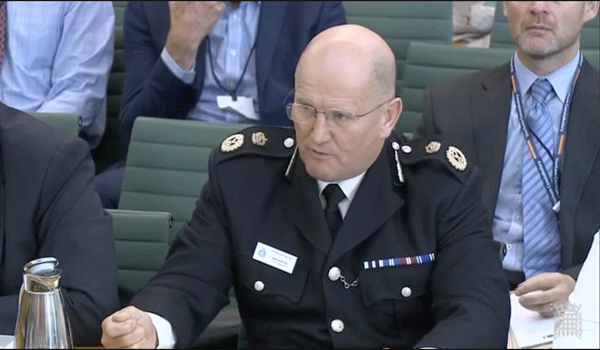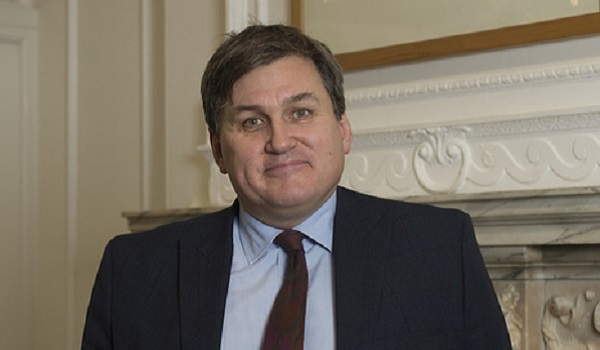Chief constable: The police cannot afford community policing
Senior police leaders have told MPs of the “immense” impact of cuts to police budgets and called for fairer funding arrangements.
At a meeting on October 10, the Public Accounts Committee heard how reductions in government grants have affected the financial sustainability of policing in England and Wales, with police and crime commissioners (PCCs) and senior officers urging financial reforms.
Jane Kennedy, the Merseyside PCC told the committee: ‘‘The impact of austerity has been immense… and that impact has been largely on urban forces.”
Ms Kennedy said force-wide resources such as burglary/robbery squads are no longer available because they have been subsumed into the other structures, there are far fewer officers in challenging parts of the city and they are restricted in how they can impact locally, offering less visibility.
Urban street gangs are now causing fear among communities, she said, with the elderly too frightened of street gangs to be outside after 2pm.
“Community support and links have evaporated,” she added.
The former Financial Secretary to the Treasury when a Liverpool MP in the last Labour government highlighted the recent National Audit Office (NAO) report showing how the freeze on central government grants and reliance on council tax income to fund budget increases has affected forces in different ways, saying this was “unfair”.
She said: “The Home Office is developing a better understanding of the pressures faced by police officers, and this better understanding should show a more nuanced approach to how the police are financed.”
Alison Hernandez, the Devon and Cornwall PCC said street crime and violence were also increasing in her force area – there is more demand on policing, and so less time for planning.
And she agreed that it was unfair to place the burden of funding increases on local taxpayers – the proportion of the force’s budget that comes from the council tax has risen from 33 to 44 per cent.
She said if her force was to receive the same per head of population funding, it would receive £31 million extra if it received the same as Durham and £112 million more if it was given the same level as Merseyside.
Chief Constable Mike Barton said Durham Constabulary had lost a quarter of its officers following austerity and 18 per cent of police staff, but local government partners have also had almost 40 to 50 per cent cuts, with more to come.
Cuts have also been behind a major shortage of investigative officers in the police service. Mr Barton said: “Some forces are not showing much impact, but some of the big metropolitan forces, such as the Metropolitan Police Service, certainly are. Two-thirds of chief constables would paint a gloomy picture of the lack of investigative powers.”
He said the public sector needed an incentive to change and improve and the budget cuts his force faced in 2010/11 were helpful to the organisation – it has become much more “private sector motivated with a public sector heart”, but austerity has gone on for too long.
“We were told it would end in 2015 and it has not. That has been so traumatic,” he said, adding that the public his force serves had been let down.
“The trade-offs are that we’ve lost more cops than we are comfortable with, and that’s less visibility and less traditional investigation. ICT development has been delayed, and that’s absolutely crucial in this age of cybercrime. We haven’t been able to invest in citizen self-service. Our productivity has declined, and we have 43 organised crime groups. And I am only employing high-end tactics on a couple of those. I would like there to be more high-end targeting of organised crime.”
Mr Barton said that the biggest challenge he faced was the 11 per cent of the grant that is top-sliced, partly to fund Her Majesty’s Inspectorate of Constabulary and Fire and Rescue Services.
“Inspection is really important, but needs to be proportionate,” he said.
Durham Constabulary receives 14 full weeks of inspections and without it he could perhaps go out and help other forces who do not receive the ‘outstanding’ grades awarded to his force.
Mr Barton was also critical of the overspend on the Law Enforcement Data Programme, the Home Office-led development of national police IT programmes.
The cost of the programme has spiralled from £99 million in October 2016 to almost £230 million between 2016 and may 2018. Automatic numberplate recognition “has quietly been dropped from the programme” he said, against his advice.
And he was damning of further costs and delays which will mean the systems will be less effective if they are implemented in five years’ time.
“They’ve asked for a cool extra £91 million to take us through to 2023. It was promised by 2018 – they are not listening to me – why take probably over £300 million off policing when it will ultimately, if delivered, diminish our capability?”
Mr Barton said austerity and top-slicing means the service is unable to match public expectations:
“The public wants community policing, the Peelian principle,” he said. “But we can’t give it to them as we can’t afford it.”
The committee quizzed the panel on whether mergers and alliances between forces were still viable in light of the cancellation of a strategic alliance between West Mercia and Warwickshire forces. Ms Hernandez, who recently pulled out of merger discussions with Dorset Police, said: “Mergers can work, but there has to be flexibility to enable it to work – discrepancies in council tax precepts between Dorset and Devon and Cornwall has been a problem.”
Chief Superintendent Paul Griffiths, vice-president of the Police Superintendents’ Association, said collaborations can be very effective. Of 110 members who have been or are in collaborative roles, 82 per cent say that mergers are the way forward.
However, Mr Barton was less than enthusiastic about force alliances due to organisational and financial constraints: “[Forces have] different systems and IT, and funding must be put forward. It’s a brownfield site – I think it’s a dead duck, at least for a generation.”






